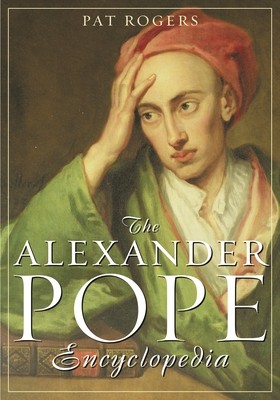
- We will send in 10–14 business days.
- Author: Pat Rogers
- Publisher: Greenwood
- ISBN-10: 0313324263
- ISBN-13: 9780313324260
- Format: 18.4 x 26.1 x 3.1 cm, hardcover
- Language: English
- SAVE -10% with code: EXTRA
Reviews
Description
Alexander Pope (1688-1744) was the most important English poet of the 18th century, as well as an essayist, satirist, and critic. Many of his sayings are still quoted today. His Essay on Criticism shaped the aesthetic views of English Neoclassicism, while his Essay on Man reflected the moral views of the Enlightenment. He participated fully in the critical debates of his time and was one of the few poets who supported himself through his writing. This reference conveniently summarizes his life and works. Included are several-hundred alphabetically arranged entries on Pope's works, subjects that interested him, historical events that impacted Pope's life and work, cultural terms and categories, Pope's family members and acquaintances, major scholars and critics, and various other topics related to his writings.
The entries reflect current scholarship and cite works for further reading. The encyclopedia also provides a chronology and concludes with a selected, general bibliography. Because of Pope's central importance to the Enlightenment, this book is also a useful companion to 18th-century literary and intellectual culture.
EXTRA 10 % discount with code: EXTRA
The promotion ends in 19d.12:45:37
The discount code is valid when purchasing from 10 €. Discounts do not stack.
- Author: Pat Rogers
- Publisher: Greenwood
- ISBN-10: 0313324263
- ISBN-13: 9780313324260
- Format: 18.4 x 26.1 x 3.1 cm, hardcover
- Language: English English
Alexander Pope (1688-1744) was the most important English poet of the 18th century, as well as an essayist, satirist, and critic. Many of his sayings are still quoted today. His Essay on Criticism shaped the aesthetic views of English Neoclassicism, while his Essay on Man reflected the moral views of the Enlightenment. He participated fully in the critical debates of his time and was one of the few poets who supported himself through his writing. This reference conveniently summarizes his life and works. Included are several-hundred alphabetically arranged entries on Pope's works, subjects that interested him, historical events that impacted Pope's life and work, cultural terms and categories, Pope's family members and acquaintances, major scholars and critics, and various other topics related to his writings.
The entries reflect current scholarship and cite works for further reading. The encyclopedia also provides a chronology and concludes with a selected, general bibliography. Because of Pope's central importance to the Enlightenment, this book is also a useful companion to 18th-century literary and intellectual culture.


Reviews